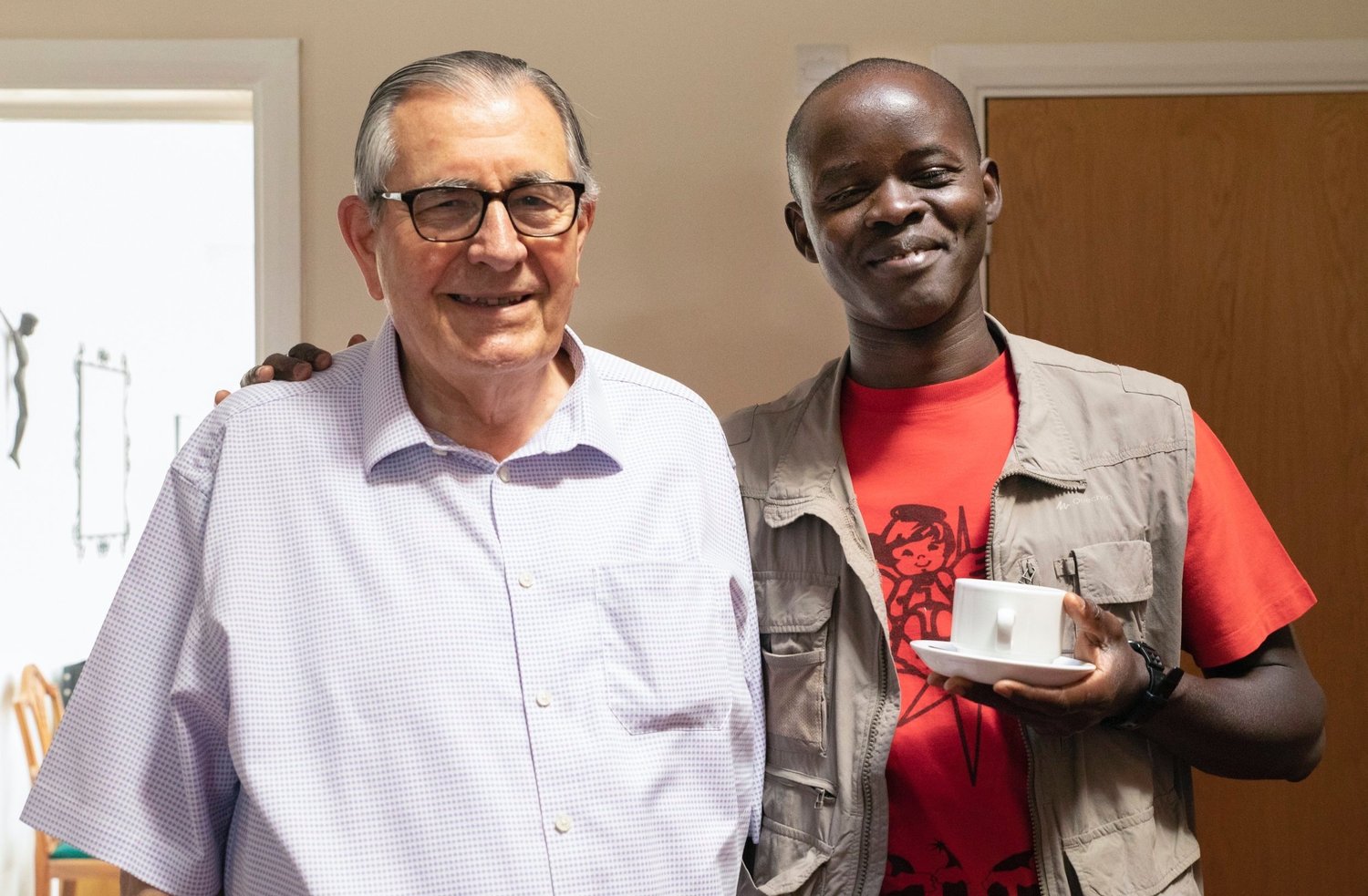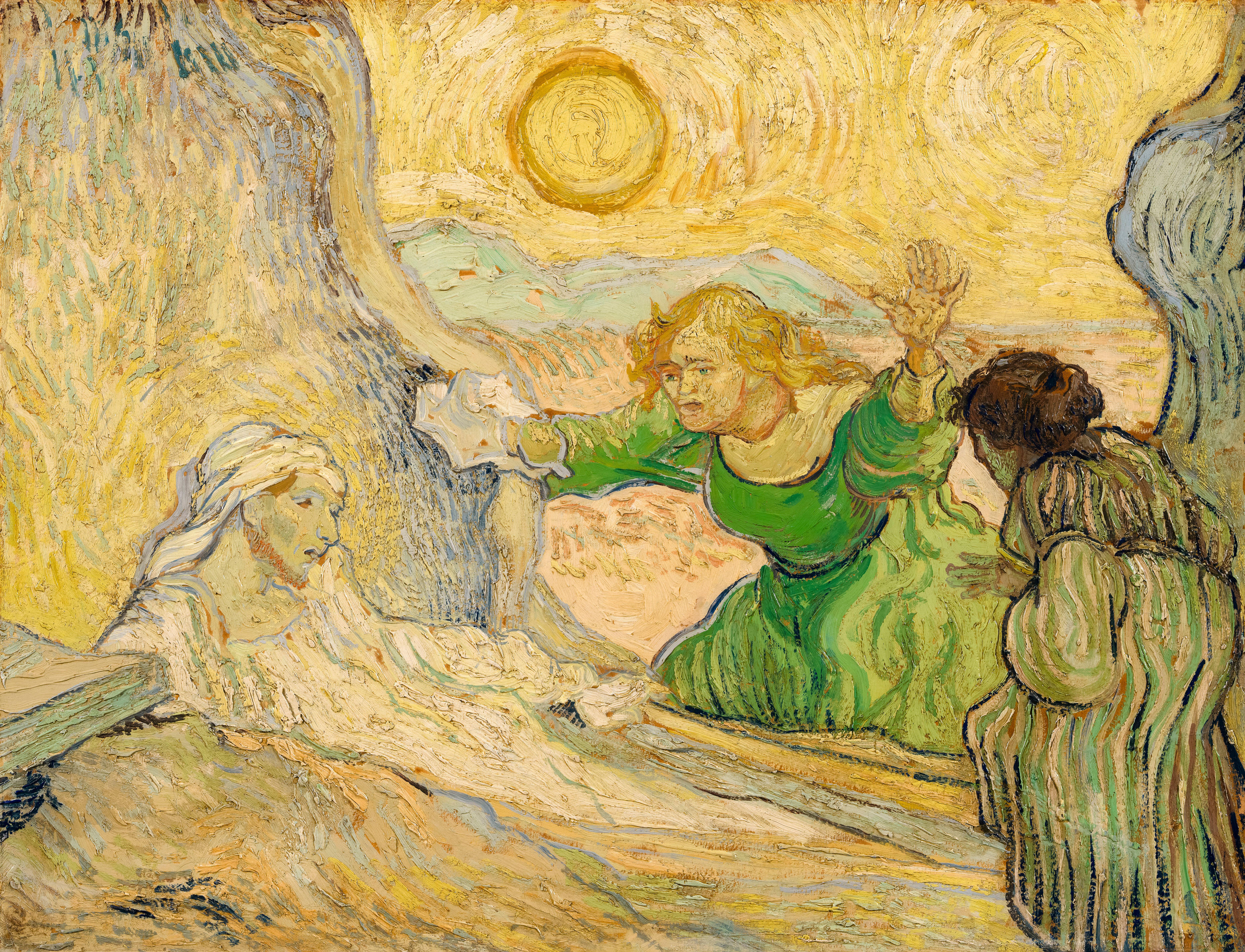The raising of Lazarus marks a crucial stage in John’s gospel. For one, it’s the last and most explicit of the socalled ‘signs’ of which John speaks throughout his gospel, beginning with the miracle at the wedding feast at Cana. These ‘signs’ mark the unfolding revelation of God’s purpose which, as he makes clear in his prologue, is the imparting of life: not just physical, biological life, as in the case of Lazarus, but divine life, shared with us in and through Christ and manifest in is resurrection. The episode is also crucial in the narrative of the gospel: it’s both profoundly significant and supremely ironic that the raising of Lazarus is the event that finally seals Jesus’ fate.
On hearing of it, the alarmed Pharisees take the chillingly pragmatic and fundamentally amoral advice of Caiaphas, the High Priest, who tells them that “It is better for one man to die than that the whole nation should perish.” After that quintessentially consequentialist counsel, they jointly settle on a strategy to rid themselves of Jesus. The ultimate ‘sign’ that fulfils and yet is essentially different from all the others, will be Jesus’ resurrection. What happens to Lazarus is, of course, not resurrection, but resuscitation: the temporary reversal of death and a return to life as it was, in a mortal body. Nevertheless, John clearly intends the raising of Lazarus to be understood symbolically as anticipating Jesus’ resurrection and, therefore, our own. The raising of Lazarus, then, is a prolegomenon to the Passion and Resurrection and, as such, it expresses the whole thrust and message of John’s gospel: namely, that to encounter Jesus is to encounter God, the source and giver of all life and all love.
And nowhere do we encounter him more explicitly than in Jesus’ act of unselfish and heroic love on the Cross. That generosity is evidenced at the very beginning of this episode, when Martha and Mary, the sisters of Lazarus, ask Jesus to go to their home at Bethany in Judea. He and his disciples know full well that Bethany is dangerously close to Jerusalem: to go there is to put their own lives at risk. John describes the disciples’ agitation but, for once, he also emphasises their resolution. Despite deadly danger to themselves, they resolve to follow Jesus to Jerusalem. Thomas speaks for all of them (and us) in unbearably moving words: “Let us go also, that we may die with Him.” And so, this episode of John’s gospel encapsulates the Incarnation. In the gospel, Jesus sets aside his own safety and enters into mortal danger, in order to restore life to his dead friend. In the Incarnation, he leaves the bosom of his Father, to restore life to a dead world, a world intent on self-destruction. But Jesus does more than give up his life for us: he gives his life to us; or, better, he shares his life with us. And this is manifest and made real in his willingness to sacrifice his life out of love for us – the ultimate paradox of all human flourishing.
That’s why John draws each of us into this gospel, by making the point of the incarnation inescapably personal. He intends that each one of us identifies personally with Lazarus. You and I are Lazarus: Jesus enters into mortal danger in order to share his own life with us, to save you and me from endless death, to impart to you and me, at the cost of his own mortal life, his eternal, undying divine life.
Again, you and I, like Lazarus, are the friends of Jesus. “See how he loved him” the onlookers say, as Jesus weeps for Lazarus, his friend. That ‘him’ is you and me, as well as Lazarus. And, finally, you and I are Lazarus. Jesus calls forth you and me from whatever deadens us or imprisons us in the tombs of our own making, here and now. So, coming as it does immediately before the Passion of Christ in the gospel, when Jesus makes good his costly choice freely to accept death in order to give us life, this episode of John’s gospel is a perfect preparation for the events of Holy Week. It invites us to contemplate those events, not as detached spectators, at a safe distance, curious and moved but essentially uninvolved, but rather in the full knowledge and acceptance that all this is being endured by Jesus for love of you and me, personally, to do for us what we cannot do for ourselves; namely, to free us from that self-destructive spiral we call ‘sin’, and to bring us back to life in Him. Only love of this depth and intensity, divine love – “love divine, all loves excelling” - could do this. And, in Jesus’ own words, uttered from the Cross, “Consumatum est” – “It has been done”



 Loading ...
Loading ...
What do you think?
You can post as a subscriber user ...
User comments (0)